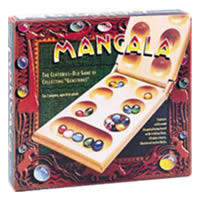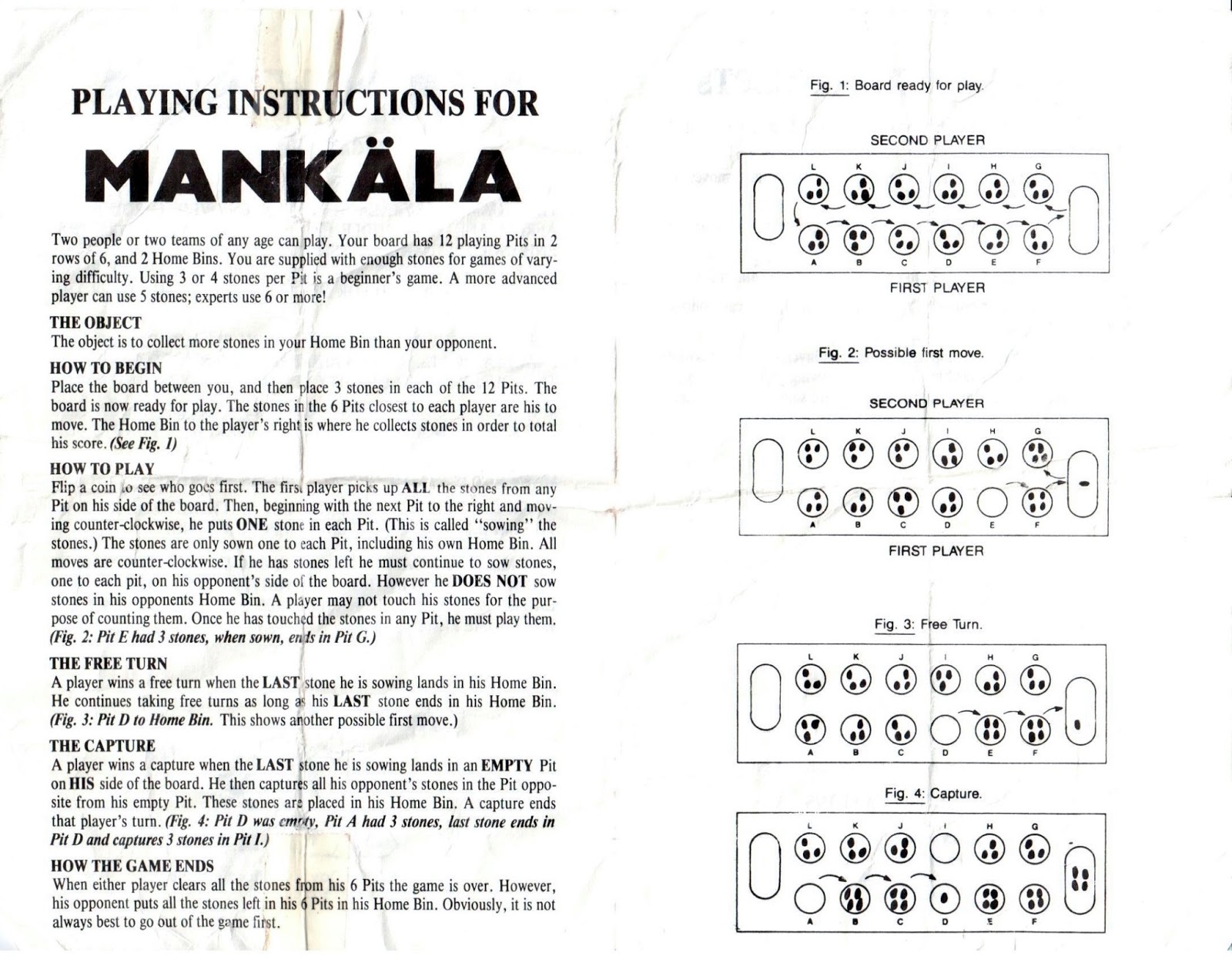

To play Mancala you need a board with 12 fields (called houses). Mankala-Wari is a strategy board game for two players who make alternate turns by “sowing” pieces.
:max_bytes(150000):strip_icc()/GettyImages-175481636-5a9eb053ae9ab8003737688f.jpg)
Rules of the game Mancala in general (variant known as Oware, Wari, Warri, Walle, Adji or Awélé) But we have to start from somewhere so in this post I will present you a variant called Wari. As I mentioned, there are many variants and alternative rules.

If so, you should learn rules of the game. I hope this introduction encourages you to give Mancala a try. Nowadays there are many lovers of Mankala in the USA so his work was not in vain. Later he started to popularize the game and produce sets. Around 1940 man named William Julius Champion Jr. Under the name of Warra game became popular in the 1920s. Mankala seems good to practice counting and also in Africa people believe that this game rises math skills.Īnd what Americans did for Mancala? They commercialized game… and it was good. He was also interested in Domino and Cribbage. It’s good to mention that Fritz Jahn was interested in using games in education. Interestingly, the game was adopted by the German aristocracy in the Baltic provinces of the Russian Empire. The German name of the game is “ Bohnenspiel” which means “a bean game”. author: Thomas Quine (license: CC BY 2.0) For some African tribes, Mankala was worshiped game (like the game of Mill which also had its religious dimension in other parts of the world). Some Mankala sets were made truly artistically. In addition, you don’t have to use pebbles and simple boards to play. How did it happen that such modest game became a royal gift? Well … the game itself is very sophisticated and requires a stout mind.

The original board was a gift from the Shah of Persia for Empress of Russia Catherine the Great. In fact, the author met this game during his trip to Estonia, where he saw a replica of the board kept today at the Hermitage. And this was a book about old German(!) games. In 1917 Mankala was described in German book by pastor Fritz Jahn. Perhaps it was already known by some English merchants in the 17th century, but they didn’t popularize it. author: Wizzy ( CC BY-SA 3.0 license)Įuropeans know Mancala since ca 100 years. One basic rule remains unchanged – the move is done by “sowing” and the effect of the move depends on numbers of seeds in pits (I explain this below in the description of rules). The rules of the game depend on the cups and seeds so you can easly change their number and modify the rules. It’s really easy to create a new Mancala variant. There are many variants of the game with its own names like Ali Guli Mane (known in South India), Congkak (Philippines) or Oware (Ghana). In Ethiopia as Gabata, in Sudan as Kara or Aringari, in Java as Dakou and in the Philippines as Chunkajon. In Uganda as Lea, Bao, Bonzo and also as Pehi. The game is known under different names in different parts of the world. This endearing simplicity allows anyone to play, but on the other hand, it could limit the number of archaeological relics of Mancala. You can play in small bowls or just in little pits made in the ground. In Mancala you can use almost everything as pieces – pebbles, seeds, shells. Mancala unlike other old games (such as Mill) did not require permanent board or special pieces. Probably a Mancala board (photo: Dr._Colleen_Morgan license: CC BY 2.0) The oldest traces of the game found in Eritrea and Ethiopia are dated on 6th or 7th century AD. Mankala is so old that nobody knows exactly since when it’s known to humanity. Those pieces can be of the same or different color. It’s a family of strategy board games, with a rather unusual board in the form of hollows or cups, to which players “sow” numerous pieces in form of seeds, marbles or shells. The family of games known today as Mancala is hard to confuse with anything else. And what Africa gave to the world? Mancala of course! A real jewel of Africa. Europe has developed Checkers and Chess in its modern, western form. Go and Mahjong may be seen as the great wealth of China. India had brought Chess and many other games to the world. Imagine that games are treasures of different nations, countries, and continents.


 0 kommentar(er)
0 kommentar(er)
